
Are you a United States Civil War buff? Then this is the Top 10 list for you. Here, we summarize the achievements of the top 10 generals of the US civil war, from both sides: Union and Confederates. The civil war was a bloody time in American history, but the outcome has led us to be one of the most prosperous nations on the planet. Enjoy this list.
Civil War Generals Summary List
Here is a quick overview of what you will read below:
- Ulysses S. Grant (Union) – He led the Union army to several victories, including the capture of Vicksburg and the defeat of Confederate General Robert E. Lee at Appomattox Court House, effectively ending the Civil War.
- Robert E. Lee (Confederate) – He was known for his brilliant tactics and strategic thinking, leading Confederate forces in several victories, including the Battle of Chancellorsville. Despite being vastly outnumbered, he nearly won the war for the Confederacy.
- William T. Sherman (Union) – He was famous for his “March to the Sea,” in which he led Union troops through Georgia, devastating the Confederate infrastructure and morale. He also played a key role in Grant’s eventual defeat of Lee.
- Thomas “Stonewall” Jackson (Confederate) – A charismatic and talented commander, he was a key figure in several Confederate victories, including the First Battle of Bull Run and the Valley Campaign. He was accidentally killed by his own men during the Battle of Chancellorsville.
- Philip Sheridan (Union) – A fierce and aggressive commander, he was instrumental in the Union’s victory in the Shenandoah Valley and played a crucial role in the defeat of Lee’s army at the Battle of Five Forks.
- George G. Meade (Union) – He led the Union army to victory at the Battle of Gettysburg, one of the turning points of the war. Despite his victory, he was often overshadowed by his more famous superiors, Grant and Sherman.
- J.E.B. Stuart (Confederate) – A daring and flamboyant cavalry commander, he played a key role in several Confederate victories, including the Battle of Chancellorsville. He was eventually killed in battle at the Battle of Yellow Tavern.
- James Longstreet (Confederate) – A large and powerful man, he was one of Lee’s most trusted subordinates, playing a key role in several Confederate victories, including the Battle of Fredericksburg. He was later criticized for his performance at the Battle of Gettysburg.
- Ambrose Burnside (Union) – He led the Union army in several engagements, including the Battle of Fredericksburg, where his forces suffered a devastating defeat. Despite his setbacks, he was a popular and well-respected commander.
- Braxton Bragg (Confederate) – A highly controversial figure, he was widely criticized for his leadership and interpersonal skills. Despite his setbacks, he played a key role in several Confederate victories, including the Battle of Chickamauga.
Countdown Details
Let’s count down the Top 10 US civil war generals.
10. Braxton Bragg (Confederate)
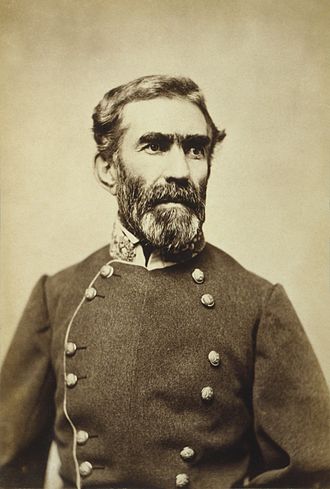
Braxton Bragg was born on March 22, 1817 in Warrenton, North Carolina. He lived a long life and died on September 27, 1876 in Galveston, Texas. Bragg was a Confederate general during the Civil War and is remembered for his strategic and tactical abilities.
- Bragg was a West Point graduate and served in the Mexican-American War.
- He was a successful sugar plantation owner before the war.
- Bragg was known for his strict discipline and strict obedience to orders.
- He led Confederate forces in several key battles, including Shiloh and Perryville.
- Despite his tactical skills, Bragg had a reputation for being difficult to work with and often argued with his subordinates.
- He was in command at the Battle of Stones River, which was a significant Confederate defeat.
- Bragg was also in charge of Confederate forces at the Battle of Chickamauga, which was a Confederate victory.
- He served as military advisor to Confederate President Jefferson Davis.
- After the war, Bragg became a civil engineer and surveyor.
- Despite his mixed military record, Bragg remains a controversial figure in American history.
9. Ambrose Burnside (Union)
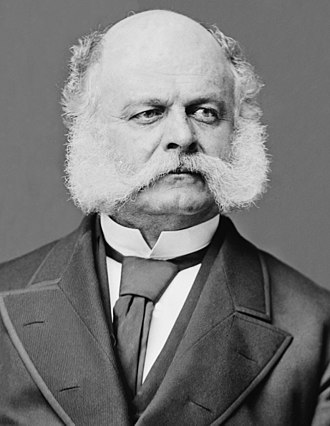
Ambrose Burnside was born on May 23, 1824 in Liberty, Indiana, USA. He died on September 13, 1881 in Bristol, Rhode Island, USA.
- Burnside was a Union general in the American Civil War.
- He was known for his distinctive whiskers, now called sideburns, which were named after him.
- He was a good friend of Abraham Lincoln.
- Burnside led the Union Army’s defeat at the Battle of Fredericksburg in Virginia.
- He later served as the governor of Rhode Island.
- Burnside was a successful businessman and inventor, holding patents for firearms.
- He was in charge of the Union forces during the Battle of Antietam in Maryland.
- Burnside was known for his kind and gentle nature, despite his military rank.
- He helped to develop the Burnside carbine, a popular firearm used during the Civil War.
- Burnside was a member of the Masonic Lodge and the Grand Army of the Republic.
8. James Longstreet (Confederate)
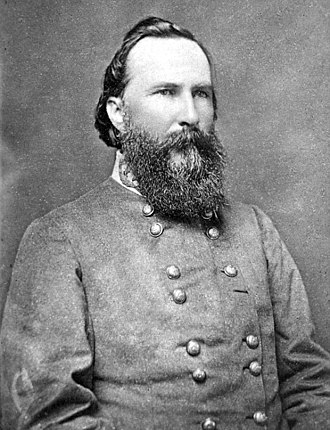
James Longstreet was born on January 8, 1821 in Edgefield District, South Carolina. He died on January 2, 1904 in Gainesville, Georgia. Here are 10 interesting things about James Longstreet:
- James was a soldier in the Confederate Army during the American Civil War.
- He was one of the best and most trusted generals of General Robert E. Lee.
- James fought in many important battles, such as the Battle of Bull Run and the Battle of Antietam.
- He was known for his bravery and his leadership skills on the battlefield.
- After the war, James became a farmer in Georgia and was even elected to the state legislature.
- He was a close friend of Ulysses S. Grant, who was a Union general during the war.
- James was one of the first Confederate generals to publicly support the idea of African American voting rights.
- He was a very successful business man, with interests in real estate, insurance and railroads.
- James wrote a book about his experiences in the war, called “From Manassas to Appomattox.”
- He was one of the last surviving general officers of the Confederate Army.
7. J.E.B. Stuart (Confederate)
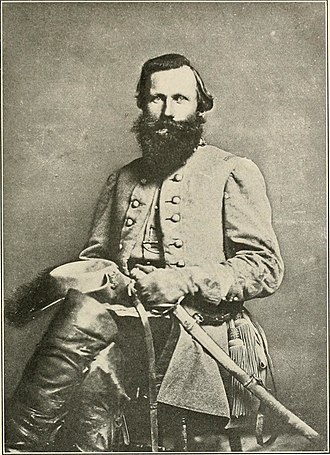
J.E.B. Stuart was born on February 6, 1833 in Patrick County, Virginia. He died on May 12, 1864 in Richmond, Virginia. Here are 10 interesting things about him:
- J.E.B. Stuart was a Confederate general during the American Civil War.
- He was known for his daring raids and fast-moving cavalry.
- Stuart was a close friend and trusted advisor to Confederate General Robert E. Lee.
- He graduated from West Point in 1854 and served in the U.S. Army until he resigned to fight for the Confederacy.
- Stuart led the Confederate cavalry at the Battle of Bull Run and was instrumental in the Confederate victory.
- He was famous for his stylish uniform, which included a wide-brimmed hat and a flowing cape.
- Stuart was nicknamed “The Last Cavalier” for his gallant and chivalrous behavior.
- He led successful raids behind Union lines, which provided valuable information to the Confederate army.
- Stuart was wounded in battle several times, but always returned to lead his men.
- Despite his successes, Stuart was criticized by some for his overconfidence and tendency to act on his own.
Overall, J.E.B. Stuart was a brave and daring Confederate general who played a significant role in the Civil War. His leadership, bravery, and panache made him a legend in his own time, and he remains one of the most fascinating figures of the Civil War.
6. George G. Meade (Union)
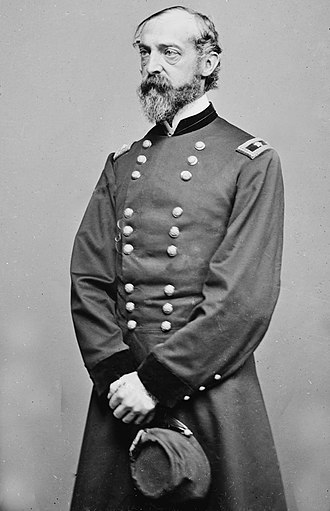
George Gordon Meade was born on December 31, 1815, in Cadiz, Spain. He died on November 6, 1872, in Philadelphia, Pennsylvania.
Here are 10 interesting things about George Gordon Meade:
- George was a US Army officer who served in the Mexican-American War and the Civil War.
- He was the Union general who defeated Confederate General Robert E. Lee at the Battle of Gettysburg.
- George was a West Point graduate and served as a topographical engineer.
- He worked on several important projects, including lighthouses and harbors, before the Civil War.
- George was known for his strong leadership and determination on the battlefield.
- He was awarded the Congressional Gold Medal for his service during the Civil War.
- George was promoted to major general after the Battle of Gettysburg.
- He went on to lead the Army of the Potomac to victory at the Battle of Mine Run.
- George was respected by both Union and Confederate soldiers for his integrity and bravery.
- Despite his success, George had a humble demeanor and never sought recognition for his accomplishments.
5. Philip Sheridan (Union)
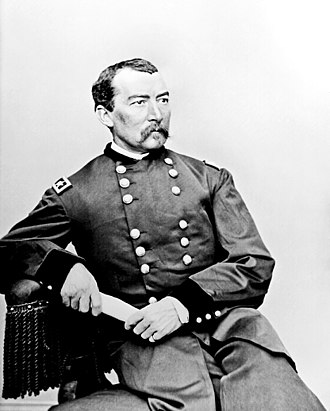
Phillip Sheridan was born on March 6, 1831 in Albany, New York. He passed away on August 5, 1888 in Nonquitt, Massachusetts. Here are 10 interesting things about him:
- Sheridan joined the army as a 2nd lieutenant in 1853.
- He fought in the Mexican-American War and the Indian Wars.
- During the Civil War, Sheridan rose through the ranks to become a Major General.
- He is most famous for his role in the Shenandoah Valley Campaign, where he destroyed Confederate resources, causing widespread devastation.
- Sheridan served under General Ulysses S. Grant and was known for his loyalty and effectiveness as a leader.
- He was instrumental in the Union victory at the Battle of Five Forks, which helped lead to the eventual fall of Richmond.
- After the Civil War, Sheridan was appointed as a military governor in Texas, where he worked to enforce Reconstruction policies.
- He later served as commander of the Division of the Missouri and the Army of the United States.
- Sheridan was known for his tough and sometimes controversial leadership style, but was widely respected for his military skill.
- In 1869, President Grant nominated Sheridan for the rank of General of the Army, making him one of only nine people to ever hold the title.
4. Thomas “Stonewall” Jackson (Confederate)
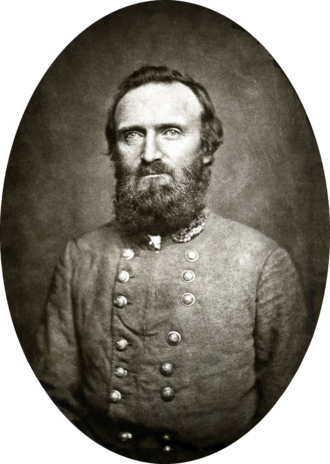
- Jackson’s military strategy was called “the valley campaign” and was known for its speed and surprise attacks.
- He graduated from the U.S. Military Academy at West Point in 1846, ranking 17th in his class.
- Jackson was a professor at Virginia Military Institute before the start of the Civil War.
- He served in the Mexican-American War and was commended for his bravery at the Battle of Chapultepec.
- Jackson was a slave owner and believed in the institution of slavery.
- He was wounded several times during the Civil War, including the Battle of Chancellorsville where he lost his arm.
- Jackson was mistakenly shot by Confederate soldiers during the Battle of Chancellorsville and died eight days later.
- Jackson’s death was a significant loss for the Confederate army and was seen as a turning point in the war.
- He was buried in Lexington, Virginia, where a large monument was later erected in his honor.
- Jackson’s legacy continues to be celebrated by many in the South and is often seen as a symbol of bravery and devotion to the Confederate cause.
3. William T. Sherman (Union)
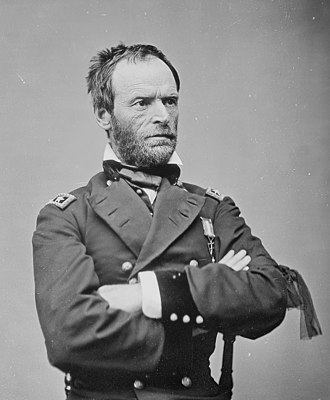
William T. Sherman was born on February 8, 1820 in Lancaster, Ohio. He died on February 14, 1891 in New York City. Here are 10 interesting things about him:
- He graduated from the United States Military Academy in 1840, ranking 6th in his class.
- Sherman served in the Mexican-American War and was promoted to captain for his bravery in battle.
- He resigned from the military in 1853 and worked as a bank president and superintendent of a military academy.
- When the Civil War broke out, Sherman rejoined the army and eventually became a Major General.
- He is best known for his “March to the Sea” during the Civil War, where he and his troops burned much of Georgia to the ground.
- Sherman’s aggressive tactics helped bring a swift end to the war and he was known as a brilliant military strategist.
- After the war, Sherman was appointed General of the Army and served as Commanding General of the United States Army until 1883.
- He was known for his fiery personality and quick temper, and was called “Crazy Bill” by some of his contemporaries.
- Despite his tough reputation, Sherman was a devoted husband and father and was deeply committed to his family.
- After his military career, Sherman served as a diplomat and helped negotiate the settlement of the Apache Wars in the Southwest.
In conclusion, William T. Sherman was a bold and brilliant military leader who left a lasting impact on the United States and its history. His aggressive tactics during the Civil War helped bring an end to the conflict and his legacy continues to be remembered and celebrated to this day.
2. Robert E. Lee (Confederate)
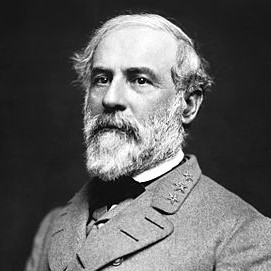
Robert E. Lee was born on January 19, 1807 in Stratford Hall Plantation, Virginia. He passed away on October 12, 1870 in Lexington, Virginia. Here are 10 interesting things about this famous figure:
- Lee was the son of a Revolutionary War hero and attended the U.S. Military Academy at West Point.
- He was known for his bravery and military tactics during the Mexican-American War.
- At the outbreak of the Civil War, Lee was offered command of the Union army, but instead chose to fight for Virginia.
- He became the commander of the Confederate army and led them in several key battles, including the Seven Days Battles and the Battle of Antietam.
- Lee was highly respected by both friend and foe for his honorable conduct on and off the battlefield.
- He surrendered to General Grant at the Appomattox Court House, effectively ending the Civil War.
- After the war, Lee became the president of Washington College, now Washington and Lee University.
- He was a strong advocate for reconciliation and worked to bring the country together after the war.
- Lee was a deeply religious man and was known for his humility and integrity.
- He is remembered as one of the greatest military leaders in American history and is widely admired for his character and leadership.
1. Ulysses S. Grant (Union)
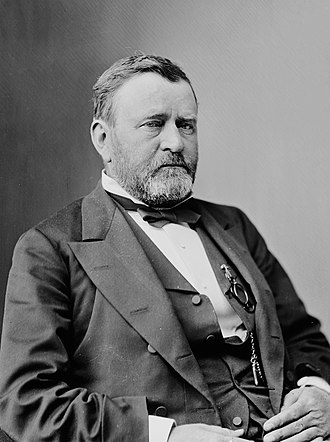
Ulysses S. Grant was born on April 27, 1822 in Point Pleasant, Ohio. He died on July 23, 1885 in Mount McGregor, New York.
- Young Ulysses was nicknamed “Hercules” for his strength and athleticism.
- Grant worked in his father’s tannery before attending the U.S. Military Academy at West Point.
- He served in the Mexican-American War and was known for his bravery on the battlefield.
- After the war, Grant struggled in his civilian life, but eventually became a successful farmer.
- He became a national hero as the leader of the Union army during the Civil War.
- Grant was elected as the 18th President of the United States and served two terms.
- He worked to rebuild the country after the Civil War and promote civil rights.
- He signed a treaty with the Native Americans to protect their land rights.
- Grant also worked to improve the economy and reduce corruption during his presidency.
- After leaving the presidency, he wrote his memoirs and worked to support veterans, before passing away from cancer at the age of 63.
